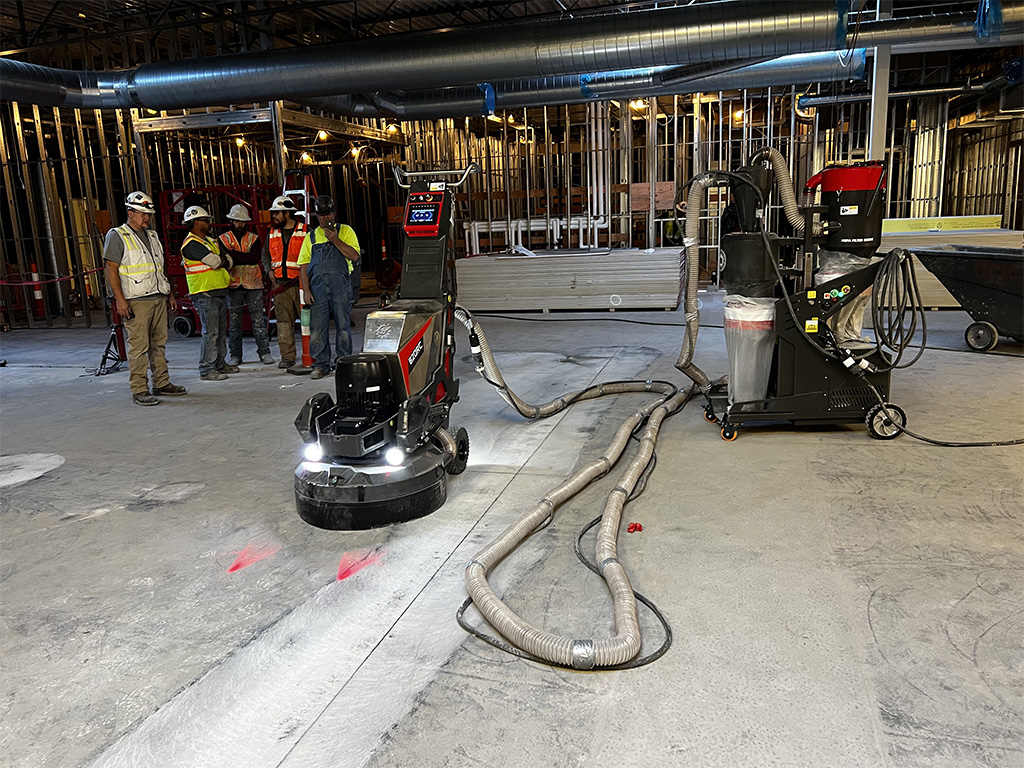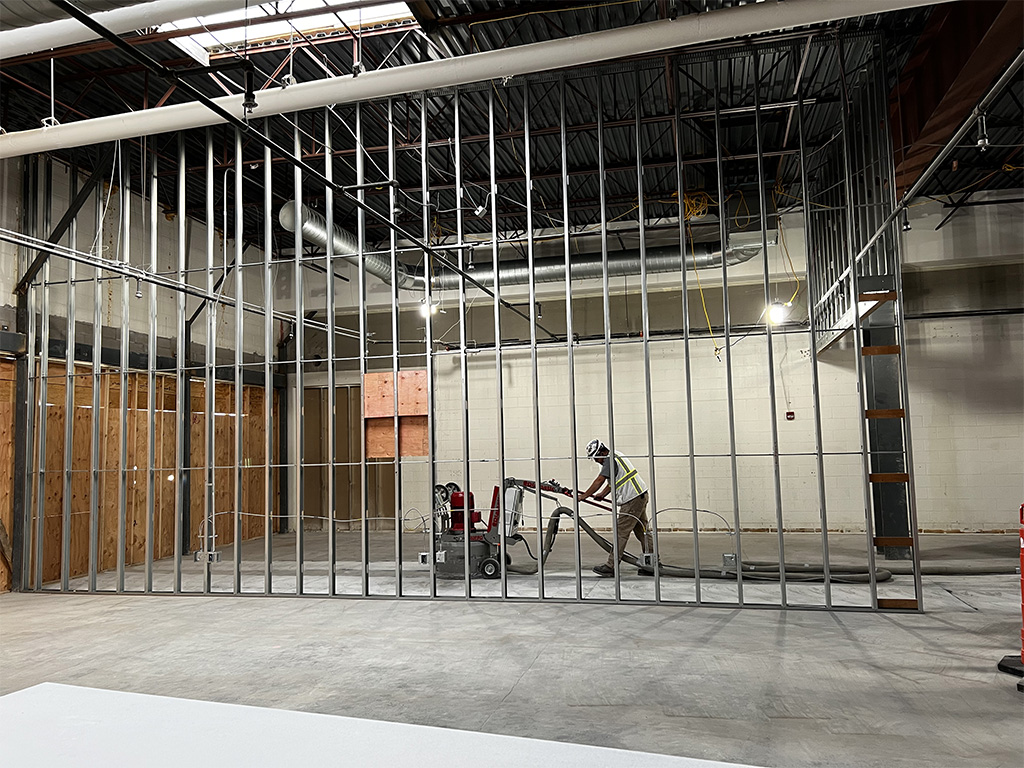Pros and Cons of Polished Concrete Floors
Polished concrete has grown in popularity in recent years. This is due to its versatility, cost effectiveness, durability and attractive appearance. But, like every flooring option, there are also downfalls and situations where an alterative floor makes more sense. We’ll cover the pros and cons of polished concrete flooring in this article, starting with the benefits of polished concrete before moving on to the disadvantages of concrete floors.
Pros of Polished Concrete
Durability
It’s hard to argue with the durability of a concrete surface as a flooring solution. Proper concrete polishing steps also include adding a densifier once the floor prep portion of the project is complete and transitioning into the polishing phase.
A concrete densifier penetrates the surface of the concrete and bonds together the concrete materials more tightly, creating a harder and more durable floor. So, actually you end up with a harder and more abrasion resistant floor than standard existing concrete alone would provide.
Life Span and Low Maintenance Costs
Polished concrete floors don’t wear out at the rate that almost all other floors do. These hard surfaces could last for 50 or more years with the right care, even with high traffic for long periods. With this long lifespan, concrete floors are generally considered to be environmentally friendly, too.
As long as they are cleaned and maintained and perhaps occasionally burnished to return their shine, they will look great for years to come.

Polishing floors on a 9,500 sq. ft. industrial project with our remote controlled dustless grinder and vacuum.
Appearance
Concrete polishing creates a one of a kind floor. The appearance is also largely customizable. If you have a concrete slab that’s in good shape and you want a largely uniform appearance, you can only polish the top layer without grinding into deeper aggregate, achieving a “cream” polish.
Grinding off the cream layer reveals the most common “salt and pepper” grind. Grinding below that gets you into small aggregate and eventually down to large aggregate.
All of these different layer show increasingly larger material the deeper you grind, and all of them can be polished from dull all they way through highly reflective. You can also change the look for the floor by creating stained concrete floors.
Light Reflective
Polished concrete does a nice job of reflecting light. This can be advantageous in places where overhead lights or daylight can better illuminate a facility from the benefits of the light reflectivity.
Inexpensive
In general, and in considering how long it lasts and the low degree of maintenance it requires, polished concrete is a low cost per square foot option. Ranging from only a few dollars in cost on the lower end of options, it’s substantially more cost effective than tile, stone, or even carpet in certain circumstances.
Disadvantages of Polished Concrete Flooring

Using our Diamatic 780 grinder attached to a vacuum to polish concrete in a large warehouse space.
Non-skid
One of the cons of concrete flooring, especially highly polished concrete floors, can be more slippery than other surfaces, especially when wet. There are additives and coatings that can mitigate this issue, but as a stand alone surface, they can become slick.
Hardness
Polished concrete floors are very hard. Standing on them all day long can lead to significant discomfort. Because of this, many businesses will want to put down comfortable mats for their employees to stand on if they are expected to be on their feet all day.
Cold
Polished concrete tends to be very cold. This can be solved by adding expensive radiant heating options during the pour of the concrete slab, however once the slab is in place, that is no longer and option. Area rugs can obviously reduce this, however expect these flooring installs to be a lot colder than something like LVT or carpet.
Polished concrete floors cost vs. hardwood flooring is another place where this is commonly considered in residential, retail, and certain commercial settings. Hardwood will certainly be a warmer choice than polished concrete.
Noisy
Surfaces like carpet, LVT and other “softer” flooring materials do a good job of mitigating noise. Polished concrete floor systems, however, do not mitigate noise well. They are similar to ceramic tile in their noise level. While there are options like putting rugs or other floor coverings in place, in general, a polished concrete floor is always going to be louder than other available flooring surfaces.
Deciding Whether to Install a Polished Concrete Floor?
At General Industrial Flooring, we’ve been grinding and polishing concrete floors in commercial and industrial settings since 1989. If you have questions or need more information regarding concrete floor polishing, specialty floor coatings, commercial epoxy flooring, design options, or nearly anything concrete related flooring project, please get in touch.
